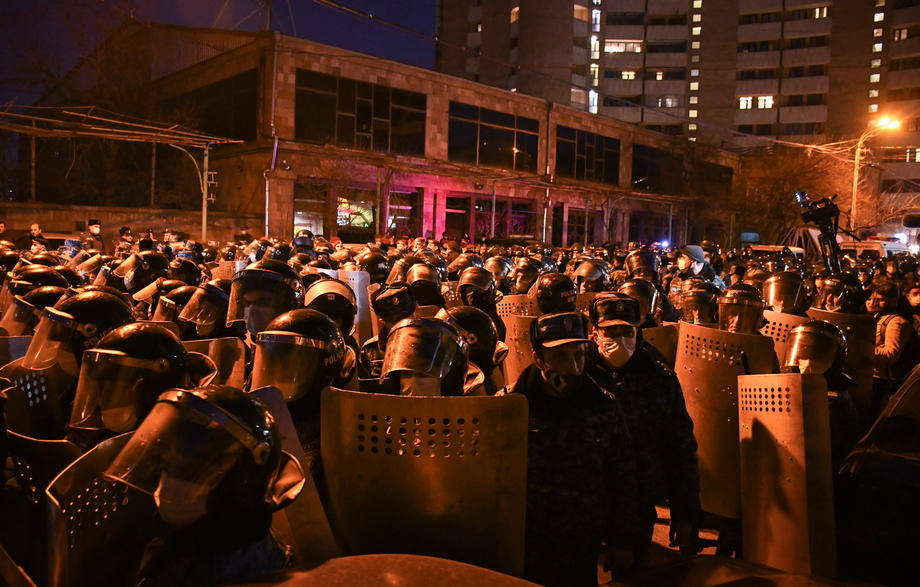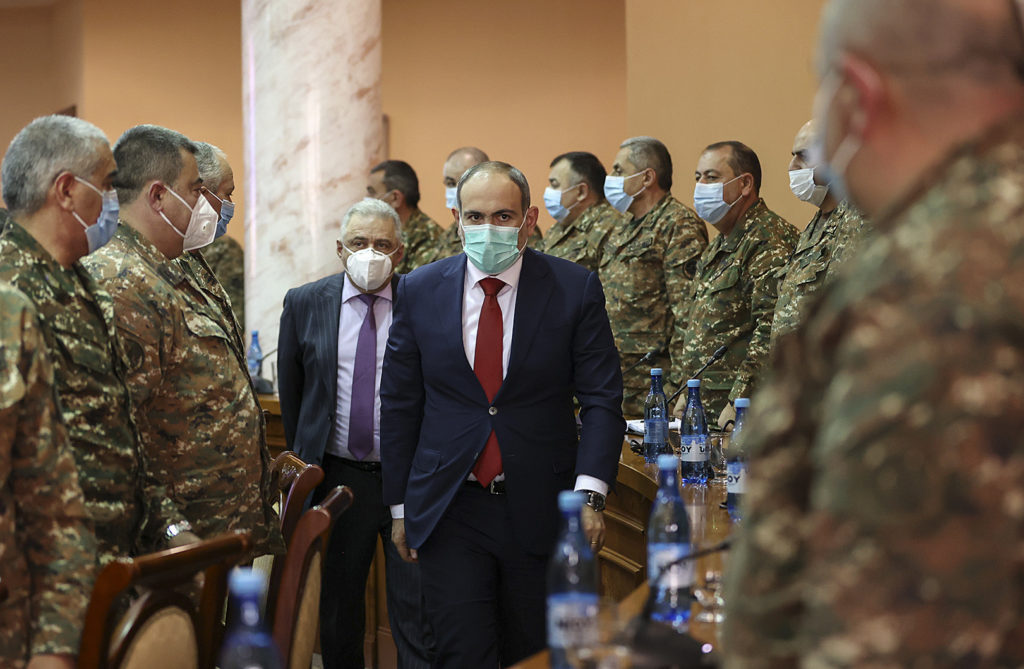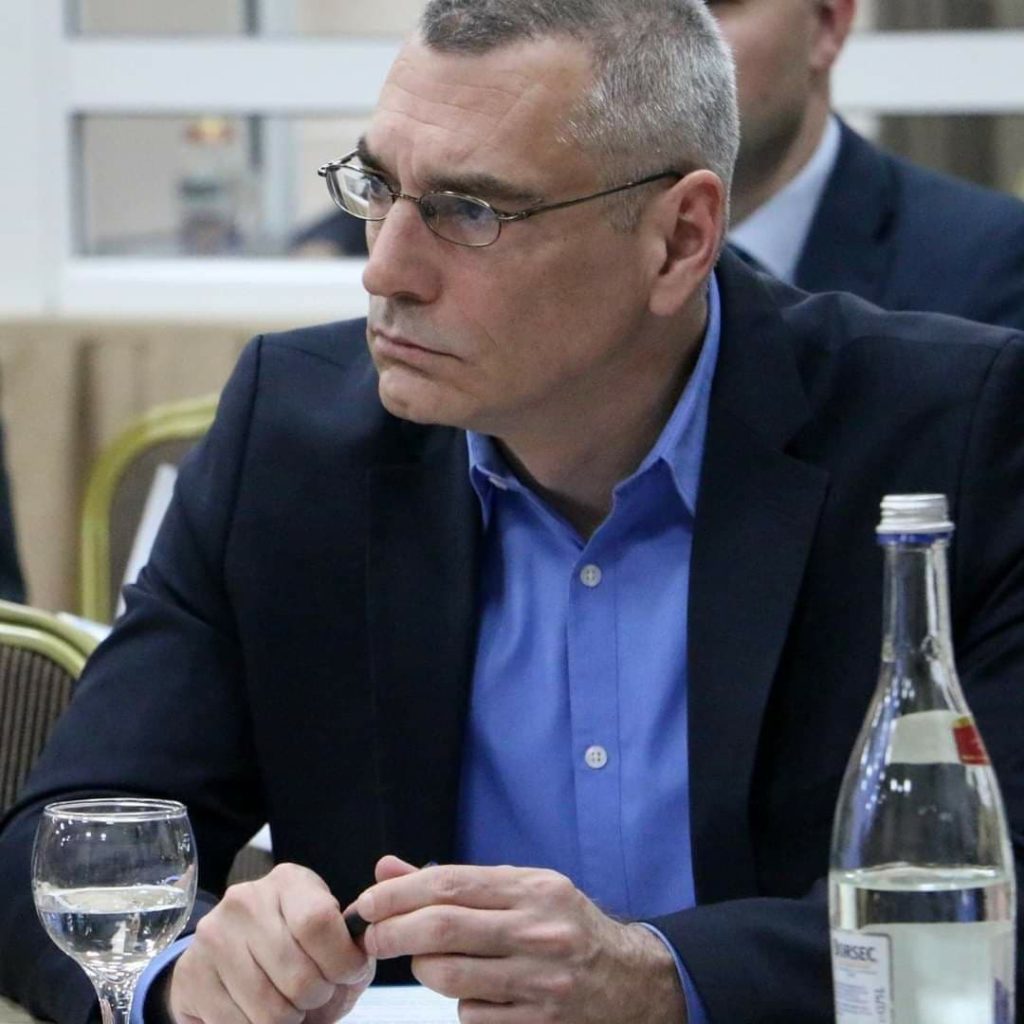By Richard Giragosian, Regional Studies Center director, Yerevan, Armenia, on current political developments in Armenia
A lingering domestic political crisis in Armenia has only further deepened in recent weeks. Although Armenian Prime Minister Nikol Pashinyan was swept into power on the popularity of his leadership and courage in forcing the ouster of the previously corrupt government in 2018, that initial euphoria has seriously eroded.
Moreover, ever since that impressive victory of non-violent “people power” in the country’s “Velvet Revolution,” the Armenian government has seen a steady decline in support while it struggled to sustain the momentum of reform and democratization.
Although buttressed by a rare degree of legitimacy from its overwhelming victory in a free and fair parliamentary election in December 2018, the government has floundered more recently, however, with a series of serious political missteps and policy mistakes that has contributed to a simmering political crisis.
Against that backdrop, it was the unexpected defeat in the 44-day war with Azerbaijan for Nagorno-Karabakh in November 2020 that triggered a sharp escalation of the pre-existing political crisis, however. Given the Armenian government’s lack of preparation of society for the scale and severity of unexpected losses from the war, Pashinyan faced an immediate and emotional series of protests, leading for calls for the prime minister to resign and demands for accountability.

Unprecedented Post-War Vulnerability
The depth of this post-war crisis in Armenia stems from the unexpected degree of vulnerability and insecurity. Most significantly, Prime Minister Pashinyan is both vulnerable and exposed by his solitary position as the only Armenian leader to have suffered a military defeat over Nagorno-Karabakh.
This is especially serious as it represents an unprecedented period of vulnerability, given the fact that the Karabakh conflict has long served as the priority element of Armenian security, defense and foreign policy.
Having emerged in well within the waning years of the Soviet period, the Karabakh issue actually predates modern Armenian independence and statehood. Within this context, the Armenian government faces a daunting challenge to adapt to a substantially new geopolitical reality.
The demands of weathering the unchartered waters of this post-war reality have also forced the Armenia leader to accept a Russian-imposed ceasefire agreement that effectively ended the six-week war for Karabakh, but which is also dependent on the presence of Russian peacekeepers for security. Faced with little choice and no alternative, the Armenian acceptance of the terms of the Russian agreement saved lives and salvaged the remaining territory of Nagorno-Karabakh. But the agreement was based on a consolidation of significant territorial gains by Azerbaijan and only affirmed Armenia’s stunning defeat.
At the same time, the limited scope of the ceasefire agreement does little to resolve the conflict and raises an outstanding question over the status of Karabakh, necessitating a return to diplomatic negotiations to ensure lasting security and stability.
The crisis escalated significantly in February 2021, however, with an unprecedented and unexpected intervention of the armed forces into the political arena. Sparked by an act of open defiance of the government, a group of some forty senior Army officers called on Prime Minister Nikol Pashinyan to resign.

The act was significant as both a serious move to undermine the traditionally stable civil-military relations and as an unusual display of the politisation of the normally neutral armed forces.
Given the impact of a dramatically new post-war environment, democracy in Armenia is now under assault. The dramatic gains of Armenia garnered from its peaceful revolution of 2018, which was driven by an activist population no longer defined by apathy but committed to defending democracy, were widely embraced as a welcome exception. But stability and security in Armenia are now imperiled.
While much of the burden of adapting and adopting Armenian national interests to meet this new post-war reality lies with the government, the international community also has a responsibility to recommit to democratization and reinvest in reform in Armenia.
The risk of regress and retreat from reform and democracy not only stands out is as a danger for Armenia, but also stands apart as a threat to the international community. And for the future of Armenia, democracy protection is now as important as democracy promotion.
DISCLAIMER: THE VIEWS EXPRESSED ARE THOSE OF THE AUTHOR AND DO NOT REFLECT ANY OFFICIAL OPINION OF THE TRIBUNE.

